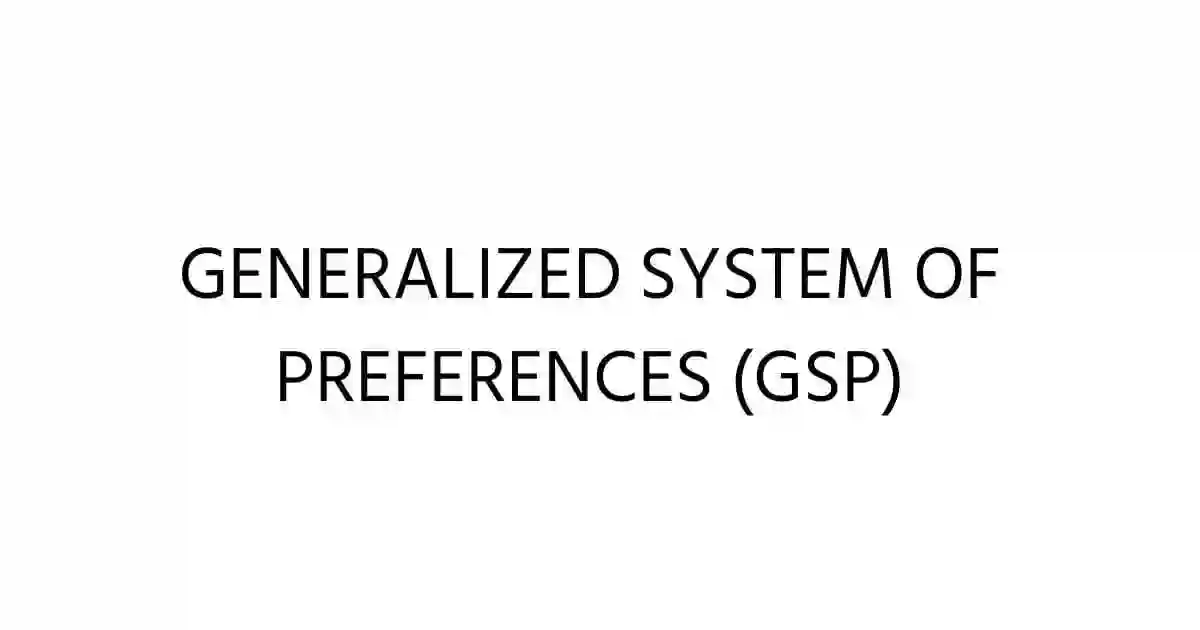Generalized System of Preferences (GSP)
The Generalized System of Preferences (GSP), instituted in 1971 under the aegis of UNCTAD, has contributed over the years to create an enabling trading environment for developing countries.
The GSP is also a US trade system that aims to provide preferential duty-free import into the US. In United States it was instituted in the Trade Act of 1974 and implemented on January 1, 1976. It undergoes periodical renewals till date.
The purpose of the GSP was to spur economic development in the poor/developing countries and diversify their economies through trade. The idea was the brainchild of the US and a few other developed member nations of the United Nations.
The GSP typically serves the purpose of giving the developing nations a platform to promote their economic growth and development.
It also helps spur job creation and allows decent competitiveness in American companies by reducing the cost of imported inputs used.
It supports progress of the beneficiary countries in aspects such as workers’ rights, intellectual property rights, and the rule of law, promoting American values.
The following 15 countries grant GSP preferences: Armenia, Australia, Belarus, Canada, the European Union, Iceland, Japan, Kazakhstan, New Zealand, Norway, the Russian Federation, Switzerland, Turkey, United Kingdom and the United States of America. GSP preferences can be removed if beneficiary countries fail to respect core human rights and labor rights.


